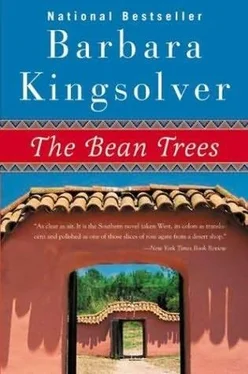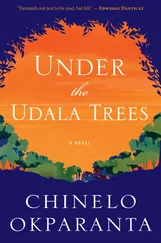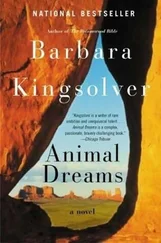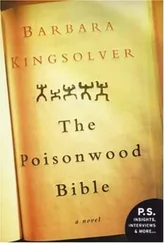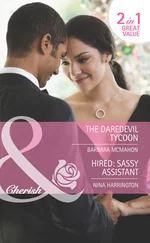“You really think so?”
“I do.”
“The thing about you, Taylor, is that you just don’t let anybody put one over on you. Where’d you ever learn to be like that?” Lou Ann wanted to know.
“Nutter school.”
Dream Angels
In the third week of May, Lou Ann got a job as a packer in the Red Hot Mama’s salsa factory. This meant that she stood elbow to elbow with about a hundred other people in a sweaty packing line dicing chiles and tomatillos and crushing garlic cloves into moving vats, with so much salsa slopping onto the floor that by the end of the day it sloshed around their ankles. The few who hoped to preserve their footwear wore those clear, old-fashioned rainboots that button on over your shoes. Most people gave up the effort. On days when they were packing extra hot, their ankles burned as if they were standing on red ant hills.
The ones that handled the chiles grew accustomed to tingling fingertips, and learned never to touch their eyes or private parts (or anyone else’s), not even on their days off. No matter how they scrubbed their hands, the residue of Red Hot Mama had a way of sticking around, as pesty and persistent as a chaperone at a high school dance.
Truly this was a sweatshop. Half the time the air conditioner didn’t work at all, and all the time the fumes made everyone’s eyes water so furiously that contact lenses could not be worn on the premises. Lou Ann’s vision was 20/20, so this wasn’t a problem, nor was any of the rest of it for that matter. Lou Ann loved her job.
If Red Hot Mama’s had given out enthusiastic-employee awards Lou Ann would have needed a trophy case. She brought home samples and tried out recipes, some of which would eventually be printed on the jar labels, and some of which would not, God willing. She gave us lectures on how the tiniest amount of cilantro could make or break the perfect salsa. Six months ago I’d never heard of salsa. Now I was eating it on anything from avocados to pot roast.
It came in three speeds: the jars with green lids were “mild,” whereas pink meant “hot.” The red-lidded jars were so-called “firecracker style.” The latter was not a big hit with the kids. Turtle would cry and pant at just the slightest taste, fanning her tongue and eying Lou Ann like she was some spy that had tried to poison us. Dwayne Ray had better sense than to let the stuff enter his mouth.
“Enough already,” I told Lou Ann. “How about we just put the jar on the table and use the honor system?” On my nights to cook I made the blandest things I could think of: broiled white fish and mashed potatoes and macaroni and cheese, to give our taste buds a chance to grow back.
But Lou Ann had bought the company propaganda, hook, line, and sinker. “It’s good for you,” she said. “Some doctors recommend a teaspoon a day to prevent ulcers. Plus it clears your sinuses.”
I informed Lou Ann that, thank you very much, my sinuses had just about vacated the premises.
Telling it this way it sounds like a lot of fights, but actually I was liking Lou Ann a great deal these days. In the few weeks since she’d started working, she had begun to cut her hair far less often and finally stopped comparing her figure to various farm animals. Having a job of her own seemed to even out some of Lou Ann’s wrinkled edges.
She mostly worked swing shift, which meant that she left at three in the afternoon, leaving the kids with Edna Poppy and Mrs. Parsons until I came home a couple of hours later. For the longest time Lou Ann was scared to say two words to Edna, for fear she might let slip some reference to eyes. Finally I cleared the air, just stating right out to Edna that for a great while we hadn’t realized she was blind, because she got on so well. Edna had just assumed we knew all along. She took it as a compliment, that it wasn’t the first thing we noticed about her.
Once she started swing shift Lou Ann’s experimental family dinners, featuring Five-Alarm Casserole and so forth, were limited to her days off. Most of the time I fed the kids and put them to bed before Lou Ann came home at eleven. Then she and I would eat a late supper, or on nights when it was still too hot to look a plate of food in the eye, we’d sit at the kitchen table fanning ourselves in our underwear, reading the paper, and drinking iced coffee. Sleep was hopeless anyway. But mostly we’d talk. At first all she could ever talk about was cilantro and tomatillos and the people at Red Hot Mama’s, but after a time things got back to normal. She would leaf through the paper and read me all the disasters.
“Listen at this: ‘Liberty, Kansas. The parents and doctor of severely deformed Siamese twins joined at the frontal lobe of the brain have been accused of attempting to murder the infants by withholding medical care.’ Lord, you can’t really blame them, can you? I mean, what would you do? Is it better to be totally retarded and deformed and miserable, or just plain old dead?”
“I honestly couldn’t say,” I said. “Not having been either one.” Although, when I thought about it, being dead seemed a lot like not being born yet, and I hadn’t especially minded that. But I didn’t give it a lot of thought. I was interested in the weather forecast. We hadn’t had a drop of rain since that double-rainbow hailstorm back in January, and the whole world was looking parched. When you walked by a tree or a bush it just looked like it ached, somehow. I had to drag the water hose around to the back every day for Matties squash and beans. The noise of the cicadas was enough to drive you to homicide. Mattie said it was their love call, that they mated during the hottest, driest weeks of the year, but it was beyond belief that any creature-even another cicada-would be attracted by that sound. It was a high, screaming buzz, a sound that hurt your eyes and made your skin shrink, a sound in the same class with scratched-up phonograph records and squeaking chalk.
Lou Ann, who had lived here long enough to make the association, said the sound of the cicadas made her hot. For me it went way beyond that. I used the air hose to blast the accursed insects out of the low branches of the Palo Verde trees around Matties, sending them diving and screaming off through the air like bottle rockets. Every time I walked past the mural of Jesus Is Lord I begged Him for rain.
But every day the paper said: No precipitation expected.
“Remember that time at the zoo?” Lou Ann asked, still occupied with the Liberty, Kansas, horror. “About those Siamese twins born pregnant, or whatever it was?”
“I remember the giant turtles,” I said.
Lou Ann laughed. “Now how’s a turtle manage to be pregnant, I’d like to know. Do they get maternity shells? I almost feel like going back to see how she’s doing.”
“Do you know what Estevan told me?” I asked Lou Ann. “In Spanish, the way to say you have a baby is to say that you give it to the light. Isn’t that nice?”
“You give the baby to the light?”
“Mmm-hmm.” I was reading a piece about earthquakes under the ocean. They cause giant waves, but in a ship you can’t feel it at all, it just rolls under you.
I twisted my hair into a knot to try and get it off my sweaty neck. I looked enviously at Lou Ann’s blond head, cropped like a golf course.
“I was so sure Dwayne Ray was going to be a Siamese twin or something,” she said. “Because I was so big. When he was born I had to ask the doctor about fifteen times if he was normal, before it sunk in. I just couldn’t believe he was okay.”
“And now you just can’t believe he’s going to get through a day without strangling or drowning in an ice chest,” I said, but in a nice way. I put down the paper and gave Lou Ann my attention. “Why do you think you’re such a worry wart, if you don’t mind my asking?”
Читать дальше
